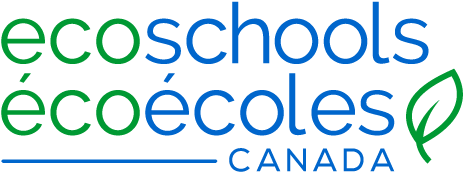Inspiration from other Ecoschools
Climate Leadership is Ontario EcoSchools’ focus this year, and certified schools already have a rich tradition of taking climate action. Here are just a few examples from 205-16 that you can use to develop your own learning and actions.
- The EcoTeam at Leamington District SS (GECDSB) established a partnership with representatives of the Ontario Ministry of the Environment and Climate Change to develop curriculum-based lessons on the Great Lakes for elementary and secondary students in Ontario. They are also working with the Trillium Foundation to support a grant application by local Caldwell First Nations group to restore the natural wetland and Carolinian forest on their property with native plants – and the EcoTeam will do the planting this spring! (Teamwork and Leadership).
- Students at St. Thomas Aquinas SS in DPCDSB discussed the importance of Indigenous Knowledge and its grounding in moderation and respect of Mother Earth across several classroom lessons. They learned how Indigenous knowledge can provide insight and solutions to issues pertaining to environmental sustainability and climate change. (Curriculum)
- Bruce Peninsula District School (BWDSB) students got crafty to reduce plastics by challenging each other to make their own toiletries like shampoo instead of buying products that are often manufactured with plastic packaging. In addition, they revisited the 4 R’s and added “Refuse” to reduce consumerism. (Environmental Stewardship)
Remember to claim what your school does in your online certification application under whichever of the six sections it best fits (see the Certification Guide).
Lesson Suggestions
If you have not already had a look at our new Climate Leadership Toolkit, here are three lessons that you can use to get your classroom thinking about climate change. and what we can do as individuals, schools, and communities to make a difference.
Become a Climate Change Citizen Scientist
This lesson serves as an introduction to the concept of citizen science, which refers to the collection and analysis of data relating to the natural world by members of the general public. Students are encouraged to recognize that they can play an important role in building robust datasets around flora, fauna, water and air quality, etc. This includes first-hand reflection and observation in nature (elementary), and taking it one step further by linking observations to a larger body of scientific study (secondary).
Measuring Your Carbon Footprint
This is a flexible activity that can easily be incorporated into classroom lessons for a range of grades and subjects. Students are encouraged to connect their daily activities to environmental impacts, thereby identifying areas where they can reduce their impact on the environment. This lesson can be extended in secondary classrooms, for example by getting students to calculate their carbon footprints and comparing them to the average carbon footprints of individuals living in different parts of the world.
Climate Change Letter-Writing Campaign
Once your class has identified how individual and collective actions are contributing to climate change, students may be interested in expressing what leadership and policy changes they would like to see from our politicians. Whether provincial policy like protecting agricultural land or a local matter like sustainable municipal development practices, a letter-writing campaign is one avenue for students to voice their concerns and visions for the future. Through this lesson, students can learn about the relationship between environmental issues and civic action.
Further resources:
- This winter and spring, EcoSource is offering Advanced Teacher Training: Approaches to Educating for Sustainability across four modules to educators across the GTA in partnership with York University’s Faculty of Environmental Studies.
- Resources for Rethinking offer a host of climate-change related classroom resources reviewed by teachers for teachers.
- Ontario EcoSchools is offering Get Inspired webinars this winter to help you introduce your students to key topics connecting climate change to education: Green Careers (January 24), Energy4Travel (February 15), and Agriculture, Climate Change, and Meatless Mondays (March 29).
- Check out our 3-part blog series on COP21 and COP22

Recent Comments